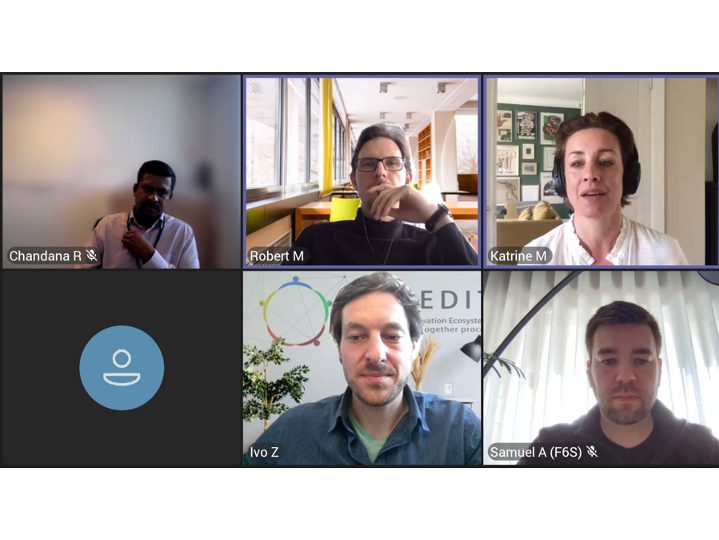Open Innovation and the pathway to collaboration along the value chain
The European-funded iPRODUCE, INEDIT, DIY4U, and OPENNEXT projects held on 22 April 2021 a joint webinar titled “Open Innovation for collaborative production engineering”, which is also the title of the Horizon 2020 topic that funded these four projects. The objective of the event was to foster a dynamic discussion on how to cultivate open innovation and to showcase what the projects are doing in this regard. The webinar had the privilege of having as a guest speaker Mr. Laszlo Hetey, the European Commission Project Officer of the four projects, who provided an overview of the rationale behind the call topic and highlighted other relevant initiatives addressing similar themes. It was highlighted that the topic had the objective of engaging actors such as micro-factories, fab labs, maker spaces with the industry to find ways to develop new products and processes, new functionalities, and achieve a shorter time to market. Through collaboration between different actors an open innovation network can be established, which also leads to new business opportunities. This introduction was followed by presentations from the four projects. OPENNEXT, represented by Mr. Robert Mies, aims to enable SMEs to engage in company-community collaboration for the co-development and market exploitation of Open Source Hardware (OSH) products and related services. OPEN!NEXT builds upon the vision that SMEs are the best placed to release the formidable potential of OSH in terms of product innovation and business incubation. iPRODUCE, represented by Mr. Samuel Almeida, looks to take well proven concepts and approaches (from DIY manufacturing, FabLabs, Makerspace), and aims to upscale them through innovative technology solutions and install them in well-connected multi-stakeholder ecosystems under an umbrella concept of collaborative Manufacturing Demonstration Facilities (cMDF). DIY4U, represented by Mr. Chandana Ratnayake, aims to develop and promote the adoption of collaborative production engineering approaches in the Fast Moving Consumer Goods (FMCG) sector. The concept is an extension of the format for paint customisation at a DIY store where they can make any small quantity of any colour a customer requires. Lastly, INEDIT, represented by Mr. Ivo Zeller, aims to create an open innovation European DIT ecosystem for sustainable furniture co-creation. It channels the creativity of consumers, shapes it through designers’ professional skills, and leverages the expertise of production specialists in order to deliver sustainable, smart and personalised new products in a shorter time to market. The four presentations were followed by an interactive Q&A session, where the projects had the opportunity to further discuss relevant issues and answer questions from the audience. A number of important ideas to retain are related to the importance of changing the mindset of many stakeholders to enable open innovation and the importance of understanding the role and responsibilities of individual actors in the value chain, among others. A key takeaway from the event is that there are different approaches to tackle the challenges of open innovation collaboration, whether it be through the use of open hardware, specialised frameworks that promote social collaboration, exploration of fast-moving consumer goods, or development of co-designed sustainable furniture. What can be expected in the future is decentralised, collaborative manufacturing frameworks with global accessibility and environmentally friendly local production.



